#microbiome health
Text
#Gut bacteria#gut microbes#gut wellness#guthealth#Gut brain#microbiomemagic#microbiome#mentalhealth#happygut#health and wellness#vjgutwell#Good sleep#stress releif#microbiome health#microbes#Healthy living#Gut microbe
0 notes
Text
Are you looking for natural ways to eliminate parasites from your body? Our functional medicine Los Angeles doctors recommend holistic approaches to health, including herbal remedies that can help you combat parasites effectively.
0 notes
Text
American Gut: an Open Platform for Citizen Science Microbiome Research
0 notes
Text
Human Gut Microbiome Is Your Body's Center Of Good Health
Human Gut Microbiome Is Your Body's Center Of Good Health https://golove-life.com/ Improving the health and condition of your gut microbiome is the most important thing you can do for your overall health.
Did you know that your body contains more microbes than human cells? Do you know why these microbes or bacteria are present in your body? These neighbors are always with us, and they typically do not make us ill. Are they friendly? Can they also make us sick? How did they enter? What part do they play in the body?

The human body is home to millions of tiny living creatures, and the entire population of these organisms is referred to as the human microbiome. Bacteria are a type of microbe that can be found almost anywhere on the body, including the skin, the nose, the mouth, and especially the gut.
It was previously believed that the human microbiome began to colonize the gut at birth, but some researchers have suggested that commensal bacteria may be passed from mother to baby across the placental barrier. The earliest bacteria to colonize babies may have originated from the mother's mouth microbiome.
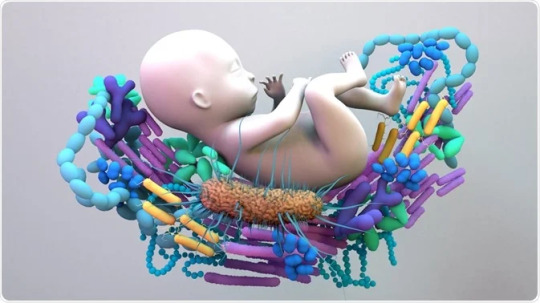
Early-life delivery modality has a significant impact on the gut flora. An infant born vaginally is initially colonized by the mother's vaginal and gut microbiota. In contrast, the skin and hospital environment bacteria are first introduced to the baby during a Caesarean procedure. Rectal mother-to-child bacterial transmission is also suggested by recent studies.
As a result, the infant born via vaginal delivery obtains bacteria similar to its own mother's vaginal and fecal microbiota during the early stages of life, demonstrating a low level of variety and primarily reliant on the baby's food.
After that, the infant's microbiota's makeup is significantly influenced by the way of feeding—breast milk versus formula. In addition to live bacteria, human milk also contains a wide variety of complex carbohydrates (known as human milk oligosaccharides) that are indigestible to infants.
These complex carbs then function as prebiotics by altering the bacterial population in the infant's stomach. While Lactobacillus and Bifidobacterium predominate in the gut microbiota of breastfed newborns, formula-fed infants acquire a microbiota more akin to that of an adult, with higher overall bacterial diversity.
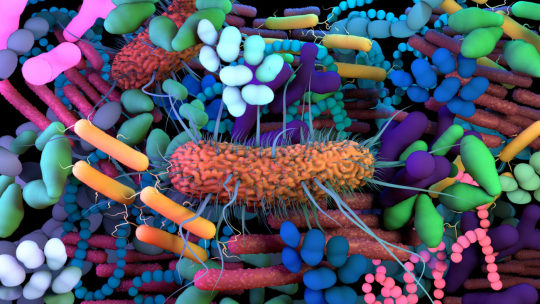
The diversity of gut microbiome increases as a child transitions from breastfeeding to solid foods rich in protein and fiber. Scientists believe that a child's gut microbiome will resemble an adult's by the time they are between the ages of 2 and 3 and will remain constant throughout their adult life.

Why Is The Human Gut Microbiome Important?
The roles of the human gut microbiome are numerous:
Protects:
It protects against dangerous bacteria.
It teaches the immune system to distinguish between friends and enemies
It breaks down harmful substances.
Nutrition:
It can digest substances that humans cannot (for example, dietary fiber).
When the gut microbiome digests dietary fiber, it generates essential compounds (such as short-chain fatty acids) that have benefits that extend beyond the gut.
It aids in the absorption of dietary minerals (e.g., magnesium, calcium and iron).
It produces various important vitamins (for example, vitamin K and folate (B9)) and amino acids (i.e., the building blocks of proteins).
Behavior:
It has the ability to influence mood and behavior.
Given its importance, scientists increasingly regard the human gut microbiome as a "organ."
According to the findings of studies on the interaction between microbial communities and their respective hosts, these organisms may carry out biochemical activities that have an effect on carcinogenesis, the formation of tumors, and the immune system's response to treatment.
According to a well-researched model on the factors that may contribute to dysbiosis in the gut, continuous intra-abdominal infections, antimicrobial drugs, or both may lead to an increased risk of colorectal cancer.
The human gut microbiome changes during the course of a person's life, from infancy to old age. While the gut microbiome is very varied in neonates, it tends to become less diverse as people age and lose essential genes, including those that are involved in making short-chain fatty acids. Frailty has been linked to the general decline in gut microbial diversity.
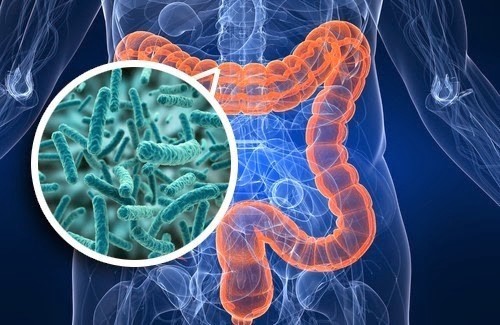
The good news is that lifestyle choices can help prevent some of these age-related changes in the gut flora. This means that the greatest way to enjoy good health and wellbeing is to take care of your gut bacteria with a nutritious diet and active lifestyle.
Both prebiotics and probiotics may support the health of the microbial flora in your stomach.
Your microbiome can choose to use prebiotics that are naturally present in some foods (including chicory root, vegetables, and whole grains) and food supplements, which can have positive health effects.
Although you are unable to digest fibre and prebiotics, certain advantageous microorganisms can. Human gut microbiome can use some fibers, although this is not a prerequisite for fiber.
Prebiotics, on the other hand, are used only sometimes by local microorganisms. Live bacteria known as probiotics can help the host's health when given in adequate doses.
Certain fermented foods, like yogurt, can provide living beneficial bacteria and a variety of significant substances created during fermentation to your gut microbiota, ensuring its balance, integrity, and diversity.
#Human Gut Microbiome#Gut Microbiome#Microbiome Bacteria#Microbiome Benefits#Human Microbiome#Gut Microbiome Food#Microbiome Health#Microbiome Facts#Importance Of Gut Microbiome#Immune System And Gut Microbiome#Best Foods For Gut Microbiome#love biome#microbiome#gut microbiota#next detox#phytopower#next balance#gut health
0 notes
Text
"A company in France has developed genetically-enhanced houseplants that remove 30 times more indoor air pollutants than your normal ficus.
Paint, treated wood, household cleaners, insulation, unseen mold—there is a shopping list of things that can fill the air you breathe in your home with VOCs or volatile organic compounds. These include formaldehyde and other airborne substances that can cause inflammation and irritation in the body.
The best way to tackle this little-discussed private health problem is by keeping good outdoor airflow into your living spaces, but in the dog days of summer or the depths of a Maine winter, that might not be possible.
Houseplants can remove these pollutants from the air, and so the company Neoplants decided to make simple alterations to these species’ genetic makeup to supercharge this cleaning ability.
In particular, houseplants’ natural ability to absorb pollutants like formaldehyde relies on them storing them as toxins to be excreted later.
French scientists and Neoplants’ co-founders Lionel Mora and Patrick Torbey engineered a houseplant to convert them instead to plant matter. They also took aim at the natural microbiome of houseplants to enhance their ability to absorb and process VOCs as well.
The company’s first offering—the Neo P1—is a Devil’s ivy plant that sits on a custom-designed tall stand that both maximizes its air-cleaning properties and allows it to be watered far less often.
Initial testing, conducted by the Ecole Mines-Telecom of Lille University, shows that if you do choose to shell out the $179 for the Neo P1, it’s as if you were buying 30 houseplants. Of course, if you went for the budget route of 30 houseplants, you’d have to water them all.
The founders pointed out in an interview done with Forbes last year that once they settled on the species and fixed the winning genetic phenotype, the next part of the process was just raising plants, the same activity done in every nursery and florist in every town in Europe."
Deliveries for the P1 are estimated for August 2024.
-via Good News Network, November 6, 2023
--
Note: I'm not a plant biologist, but if this works the way the company's white paper says it does, holy genetic engineering, Batman.
(Would love to hear thoughts from anyone who is a plant biologist or other relevant field!)
#plant biology#superplant#pollution#indoor plants#plantblr#house plants#plantlife#hope posting#solarpunk#small business#genetic engineering#genetics#molecular biology#microbiome#respiratory health#france#ivy
571 notes
·
View notes
Text
What's good for your aging gut may also be good for your aging brain. The first study of its kind in twins has found that taking daily protein and prebiotic supplements can improve scores on memory tests in people over the age of 60.
The findings are food for thought, especially as the same visual memory and learning test is used to detect early signs of Alzheimer's disease.
The double-blinded trial involved two cheap plant fiber prebiotics that are available over the counter in numerous nations around the world. Prebiotics are non-digestible consumables that help stimulate our gut microbes.
Continue Reading.
133 notes
·
View notes
Text
Femme Fatale Guide: Tips To Relieve Everyday Bloating
As someone who has dealt with chronic bloating for a lot of my life, here are some of my thoughts, observations, and recommendations. HUGE disclaimer: I am in no way an expert on this, a medical professional, nutritionist, or anything of the sort.
Especially for women, bloating can be a sign of gynecological issues (endometriosis, PCOS, hormone imbalances like estrogen dominance, and even a warning sign of ovarian cancer). So, if you experience constant bloating that doesn't get better with improved digestion, schedule an OB/GYN appointment ASAP to ensure that everything is okay on the women's health front.
Everyone's triggers are different, but for me, these are some of the common causes of bloating that I've noticed:
Lack of sleep
Stress
Eating too quickly or while stressed
Lack of movement/walking
Not drinking enough water
High-fat meals
Chewing gum
Carbonated drinks/alcohol
Here are some of my best tips, habits, and product recommendations to manage & minimize bloating:
Engage in a 1-minute diaphragmatic aka deep-belly breathing exercise in bed right after waking up and right before going to sleep (place one hand on the middle of your chest and the other in the central "hollow" area right below your rib cage)
Get at least 6-7 hours of sleep a night
Have a bowl of oatmeal (made with plain oats and water) with cinnamon and fruit every morning
Drink water before any coffee in the morning; Only having at most 16oz or one large mug of coffee before breakfast in the morning
Chew my food slowly, taking time between bites
Drink at least 8 large glasses of water daily
Take my Vitamin B12 and Vitamin D supplement daily (I love the Deva brand!)
Have avocados/use avocado oil as my primary fat source (I love nuts/nut butter, but they really bloat me, so find your trigger foods!); I've found a large salad with a romaine lettuce base, some veggies, avocado, and an ACV-based dressing works wonders to settle my stomach or steamed spinach with roasted root vegetables/potatoes
Use digestive enzymes when necessary (These digestive enzymes are my favorites!)
Take at least 30 minutes to walk/move around daily (Pilates, yoga, or bodyweight exercises also work)
Drink ginger tea or some herbal-based tea nightly (my long-time favorite is Bigelow Benefits Calm Stomach Ginger Peach Herbal Tea!)
Don't eat anything for at least 3 hours before bed
For trapped gas: Try lying on your stomach, engaging in the downward dog yoga position or fetal position on the left side, or doing an abdominal massage (rubbing in a circular motion from the right side of your pelvis up through your rib cage down and around the left side) all work well!
#bloating#debloat#digestivesupport#gut health#femme fatale#girl tips#girl talk#gut microbiome#healthy habits#health and wellness#healthylifestyle#self healing#girl advice#life advice#diet and nutrition#exercise#healthy eating#it girl#dark feminine energy#dark femininity#the feminine urge#sleep hygiene#dream girl#queen energy#high value woman#female excellence#female power#femmefatalevibe
594 notes
·
View notes
Link
Bile acids, simple molecules that live in our intestines, have long been relegated to the role of digestive workhorses, faithfully emulsifying fats for absorption. However, recent scientific revelations are rewriting the story, revealing a complex hidden world within these seemingly simple compounds. This new recognition stems from the discovery that bile acids make a remarkable difference in the hands of our gut microbes—a symphony of changes that infuses them with a surprising array of potential health benefits.
This blog dives into groundbreaking research that escapes in light of this underappreciated diversity of bile acids. With the help of this research, we can explore how our gut microbes orchestrate this complex chemical choreography and present a powerful tool scientists have developed to unlock the secrets of these modified bile acids.
Bile acids, synthesized in the liver from cholesterol, are essential for a healthy digestive system. They emulsify fats and help their breakdown and absorption. However, their impact extends far beyond the gut. These act as signaling molecules that interact with receptors throughout the body and influence functions such as metabolism, immune response, and even brain health.
Continue Reading
89 notes
·
View notes
Text
simple skincare tips!
🌼eat the foods that love you back. your skin is a direct mirror of your internal situation. if your digestive system is being bombarded often by foods that create a lot of wastes and residues, that does more harm than good. and so, the struggle to eliminate them will be reflected in your skin. your diet constitutes the vast majority of your skin health. change your meals to be whole food plant based (still delicious, satisfying, and exciting) & watch your skin glow and your skincare routine simplify.
🌼be conscious of what's going on your skin. the skin layers can be over-cleansed, imbalanced, and aggravated when the skin microbiome and pH are disrupted. if you wipe out the beneficial bacterial populations with harshly formulated products, you may find that you break out (i.e. harmful bacterial populations begin to thrive). use gentle, simple skin formulas such as castile soaps, natural oils & butters (i recommend jojoba oil for mostly everyone), natural soap bars, and clays. most commercial skin care products disturb the skin cells (introduce too much foreign material to the body, unsuitable pH ranges, imbalance the microbiome, etc). they sell because it's convention to buy them, the brands are well-known, and their sales pitches are enticing. but really, no cream or serum will ever be the magic potion your skin was asking for. it will only be a band-aid, at best. truly healthy skin comes from diet, and the products are just for any other necessary maintenance. if you get a pimple, you should look first to why the pimple emerged, not what treatment will remove it.
🌼keep your lymph flowing. simple ways to do this are through good lifestyle habits. things like doing exercise & sports you find fun, breathwork, dry brushing, eating lots of fruit, avoiding wearing bras & other tight clothing items, lymphatic massage/gua sha can all be helpful.
🌼focus on hydration via fresh fruits and veggies. the water within plant foods is more useable to your cells, and your skin will cease being overly oily or dry overtime (especially if you reduce/eliminate your salt & oil intake). it will also help to encourage lymphatic flow, so you can see problems like blemishes, cellulite, old scars diminish after great consistency.
🌼allow your skin to breathe. this is especially good if you spend time in stuffy (poorly ventilated) indoor environments, like offices, hospitals, planes, etc. one great way is via herbal facial steaming (i recommend it 3x a week or so). make a hot infusion of an aromatic tea, cover it and allow it to cool a few minutes, and, with closed eyes, allow the pores to open and receive the herbal medicine (this is a great time to meditate, manifest, and just feel pampered). getting more fresh air, working up a sweat, and going to a sauna are also ways to allow your skin to breathe.
🌼avoid steroid prescriptions creams at all costs. they are very deleterious to health in the long term, and they can be very painful to come off of. it's not a real fix. it's not worth hurting your kidneys & adrenals for. evaluate your diet instead. do you eat dairy? choose plant-based dairy options instead (they're simple to make yourself too). do you eat a lot of fats? try oil-free cooking methods instead (opt for sautéing with a bit of water, baking, steaming, air frying, etc). avoiding eating out as much.
🌼be aware of what you're putting in your hair as well. your shampoos, conditioner, leave-ins, gels, moisturizers, oils, serums, etc all tend to touch your face too, when your hair touches your face. if they wouldn't be good enough to put on your face, don't put them in your hair. a lot of the best skin cleansers are also suitable as shampoos. a lot of oils and butters can be used for both. plant-based gels like aloe vera or flax seed are simple to DIY, and are dual-use once again. basically, this will simplify your life.
🌼understand the water that runs through your pipes. if your shower and tap water are like most people's around the world, they aren't optimal for our skin. for example, they contain added chemicals to sanitize the water but that can prevent the proper microbiomes from developing on your skin. a weak skin microbiome is prone to skin issues. so, try to use distilled water on your face (if you're not able to get a water filter, a gallon jug at a store is affordable. they're about $1.30 USD in my area).
#txt#skincare#skincare routine#holistic leveling up#leveling up#level up journey#that girl#green juice girl#holistic health#skin microbiome#microbiome#glow up#true nourishment#lymphatic flow#mindful consumption#mindfulness#clean beauty#self healing#acne#skincare tips#holistic beauty#sidewalkchemistry
236 notes
·
View notes
Text
A good article reminding everyone to eat healthy to protect your microbiome. There are foods everyone should eat to make your microbiome much healthier.
34 notes
·
View notes
Text
The Human Microbiome: Your Body's Little Ecosystem
Within each of us exists a fantastic and complex microscopic universe known as the human microbiome. This ecosystem of microorganisms that inhabits our body plays a fundamental role in health and homeostasis. Today, we will fully explore this fascinating microbial world and its influence on our physiology.
What is the Human Microbiome?
The human microbiome is a profoundly intricate biological system integral to our health and well-being. This term, "the human microbiome," encompasses a diverse consortium of microorganisms that have firmly established themselves within and upon our bodies. This assemblage comprises a wide array of microorganisms, encompassing bacteria, viruses, fungi, and various other microbes, each with their specialized ecological niches within our anatomy.
Upon a deeper examination of the human microbiome, we uncover a meticulously organized distribution of these microorganisms. They do not merely coexist haphazardly within us; instead, they strategically colonize specific regions of our body. For instance, they form robust communities within the gastrointestinal tract, resulting in the gut harboring a densely populated microcosm. Similarly, they stake their claim on our skin, and even the respiratory tract serves as a habitat for these microbial entities.
The human microbiome's remarkable aspect lies in the intricate and dynamic interactions it maintains with our own organism. These microorganisms are not passive bystanders; they are active participants in the intricate orchestra of physiological processes. They exert influence over our digestion, bolster our immune system, and wield the potential to affect our mental and cognitive faculties. This complex web of symbiotic relationships between our human cells and these microorganisms constitutes an ever-evolving interplay that exerts a profound impact on our overall health.
The human microbiome is not a mere collection of microbes; it is an entire ecosystem nestled within us, a thriving and dynamic world with the potential to significantly modulate our health. Comprehending the intricacies and subtleties of this microscopic community represents an ongoing and critical pursuit in the realms of scientific and medical research, with profound implications for the fields of medicine and biology.
Solid Scientific Evidence
To support the importance of the human microbiome, here are three relevant scientific references:
Title: "The Human Microbiome: A Key Contributor to Health." Autores: Sender, R., Fuchs, S., & Milo, R. Revista: Journal of the American College of Nutrition, 2016. Abstract: This article reviews the role of the human microbiome in health and disease, highlighting its influence on digestion, immunity, and nutrient synthesis. It also emphasizes its contribution to metabolic and autoimmune diseases.
Títle: "The Human Microbiome: Gut Microbiota and Health." Autores: Marchesi, J. R., Adams, D. H., Fava, F., Hermes, G. D., Hirschfield, G. M., Hold, G., ... & Rook, G. A. Revista: The Journal of Infection, 2016. Abstract: This study focuses on the intestinal microbiota and its relationship with human health. Explore how alterations in the microbiome can contribute to gastrointestinal, inflammatory, and metabolic disorders.
Títle"The Skin Microbiome: Impact of Modern Environments on Skin Ecology, Barrier Integrity, and Systemic Immune Programming." Autores: Kong, H. H., Andersson, B., & Clavel, T. Revista: World Allergy Organization Journal, 2016. Summary: This article examines the skin microbiome's influence on skin health and immune response. It highlights how modern environmental factors can upset the microbial balance and affect the skin's health.
Future perspectives
Studying the human microbiome is a constantly evolving field that promises new therapeutic strategies and a deeper understanding of human health. As we continue to investigate this small ecosystem, doors are opening to personalized interventions to promote health and prevent disease.
Would you like to learn more about this fascinating subject? Share your thoughts and questions in the comments!

#science#biology#college#education#school#student#medicine#doctors#health#healthcare#nursing#nurses#higher education#microbiome#molecular biology
77 notes
·
View notes
Text
Hi everyone,
I found a fascinating article talking about the link between the gut micro biome and autism. Here are some excerpts from the article:
“A new paper, authored by no less than 43 scientists of various disciplines, has found the strongest link yet between gut microbes, host immunity, genetic expression in the nervous system, and dietary patterns.”
“Today, scientists know that people with autism are more likely to experience gastrointestinal issues, such as constipation, diarrhea, bloating, and vomiting.
What's more, in recent years, researchers have begun to find links between the makeup of microbes that call our guts home and neurodevelopmental disorders, like ASD.
Nevertheless, this connection isn't always consistent, and some experts have argued it isn't gut bacteria that trigger ASD, necessarily; it could be that kids with autism are more likely to restrict their diets because of 'picky' eating, which in turn influences the kinds of bacteria that persist in the digestive tract.
The new study incorporates 10 existing datasets on autism and the microbiome, plus 15 other datasets regarding dietary patterns, metabolism, immune cell profiles, and gene expression profiles of the human brain.”
The full article will be below in case anyone would like to read more.
Autism
#autism#actually autistic#autism and the gut#autism and the GI tract#autism and physical health#gut microbiome#feel free to reblog/share#tw bright colors#tw eye strain#source: ScienceAlert
70 notes
·
View notes
Text
In completely different topics, but still related to ecosystems and long-ingnored microbiomes, I was reading a paper recently
That basically said that the diversity of your microbiome was more dependant on the diversity of plants you eat than whether you ID as a vegan or omnivore (which makes sense to me because I know plenty of vegans who self-identify as junk food vegans), and that the people who ate 30 or more types of plants regularly had much more diverse microbiomes, which is good. Also those folks had fewer genes for antibiotic resistance in their microbes, which is good, and higher CLA abundance, which is also good.
It occurs to me now that a sensible starting point to act on this information would be to count up the different kinds of plants that I eat at least somewhat regularly, but instead I decided to expand my dietary horizons by foraging more regularly. So, behold, Dock (rumex) leaves/shoots that I cooked up with some red beans and rice because it turns out the complex carbs in beans & whole grains are good for your gut microbe pets:
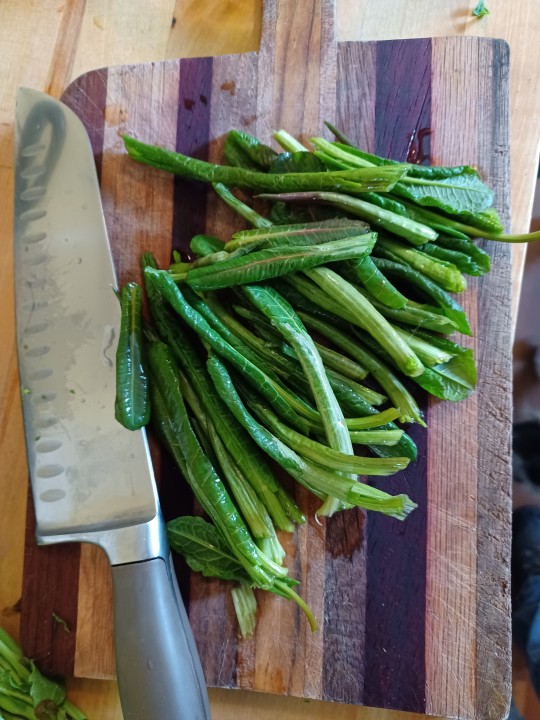
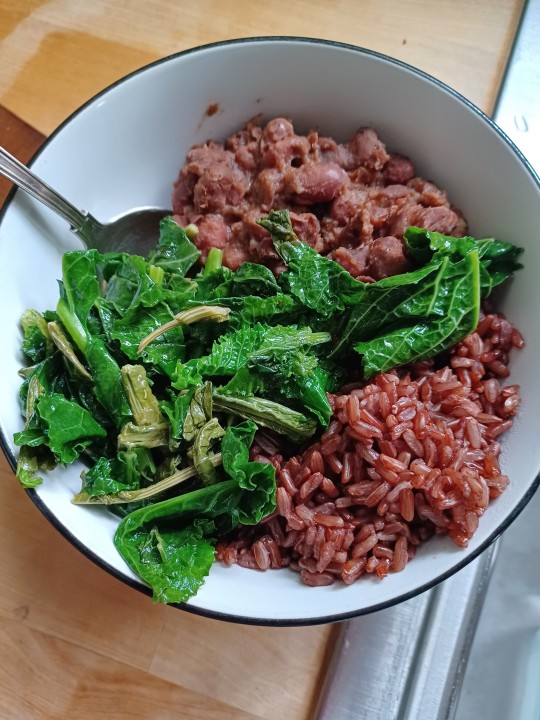
Well, off to actually count the plants that I eat regularly up!
#foraging#microbiome#eating for stomach microbe pets is one of the most motivational ways to eat 'better' for me#health
117 notes
·
View notes
Text
interesting microbiome research:
"To investigate this, researchers at the University of Oxford tested 100 different gut bacteria strains individually and in combination for their ability to limit the growth of two harmful bacterial pathogens: Klebsiella pneumoniae and Salmonella enterica. Individual gut bacteria showed a very poor ability to restrict the spread of either pathogen. But when communities of up to 50 species were cultured together, the pathogens grew up to 1000 times less effectively than when cultured with any individual species. This 'community protection effect' was seen regardless of whether the bacteria were cultured together in vials, or in 'germ-free' mice (which had no resident gut bacteria at the start of the experiments).
Author Professor Kevin Foster (Departments of Biology and Biochemistry, University of Oxford) said: 'These results clearly demonstrate that colonization resistance is a collective property of microbiome communities; in other words, a single strain is protective only when in combination with others.'...
The researchers demonstrated that protective bacterial communities block pathogen growth by consuming the nutrients that the pathogen needs. By assessing the genomes of the different bacterial species, they found that the most protective communities were composed of species with highly similar protein compositions to the pathogenic species. They also used metabolic profiling to demonstrate that the protective species had similar demands for carbon sources as the pathogens."
13 notes
·
View notes
Text

SKŌUD
#SKŌUD#Skin Health#natural#shop#science#microbiome#Hamburg#Germany#black and white#typography#type#typeface#font#Favorit Std Extended#Lydian BT#2024#Week 25#website#web design#inspire#inspiration#happywebdesign
5 notes
·
View notes
Text

What's the deal with fermented food? Well, the new thing all over the Internet is the importance of gut health. Your microbiome diversity. Fermented foods can give your body a dose of healthful probiotics — live microorganisms crucial to good digestion. So this is my first attempt at sauerkraut.
Easy peasy. Cabbage and salt. Yhinly slice the cabbage, add salt. Knead it all together til it goes soft and juicy.
Put it in a sealable jar.
Push it down as tightly packed as you can.
Leave it in a cupboard for a few weeks. Job done. I've never had it, so (slightly stained) fingers crossed!
#health and nutrition#diet and nutrition#healthy nutrition#gut health#probiotics#microbiome#suzieb-fit
12 notes
·
View notes